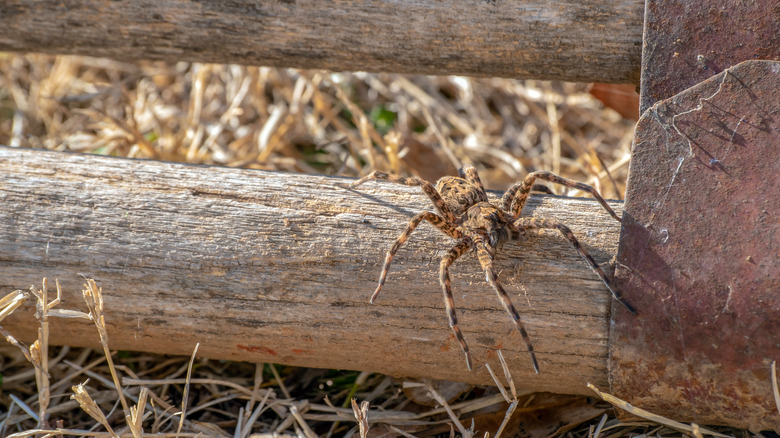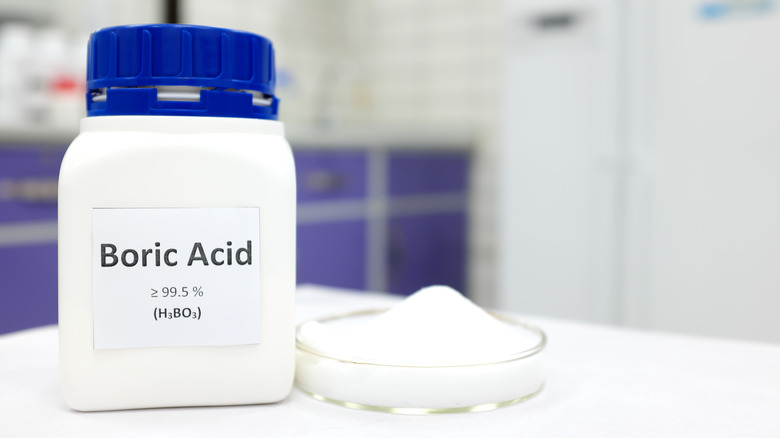Sprinkle This Powerful Substance Around Your Home To Keep Wolf Spiders At Bay
Wolf spiders are unsightly pests, yet they're one of the most common spiders to see in your home. They're big, brown, and hairy, and they come with different striped markings. They can also range from being the size of a quarter to the size of a palm, and that large size is what unsettles most people. If you come across a wolf spider in your home and want to get rid of it fast, the best thing to use is boric acid. This is a common, all-natural insecticide that's mined from the ground and used to repel and kill all sorts of pests, including cockroaches, fleas, and termites, in addition to spiders. It's a great, eco-friendly alternative to harsh spider sprays, especially if your pest problem is inside your home.
You can easily get a bag of boric acid from any hardware store, and using it to get rid of your wolf spiders is simple enough. All you need to do is strategically pour it where you see the most spider activity.
How to use boric acid to remove wolf spiders
To repel and kill any wolf spiders in your home, sprinkle small amounts where you have noticed them congregating. This can include low-traffic corners, underneath furniture, or by entry points like doors and windows. Wolf spiders don't usually make webs, so you will need to note where they hide before setting up your acid traps. You can also sprinkle some in places you notice there are other insects like flies, since that's likely where they will run to when they get hungry. Once the spider walks across the acid, it will begin to die, solving your problem.
Boric acid is a natural spider exterminator because the powder is abrasive to smaller pests. Its jagged sides cut the spider's exoskeleton, which will eventually dehydrate them and kill them. However, this might not be the best hack to use if you have small children or curious pets that might get into the powder. According to the National Pesticide Information Center, if ingested, the powder can potentially cause seizures or death in infants, so it is best to either not use it or sprinkle it in places very young children cannot reach. As for pets, it is slightly toxic to dogs and cats, so there is a risk involved, as per the Florida Department of Agriculture & Consumer Services. They would need to ingest large amounts of boric acid to create a medical emergency, but it's not 100% safe.

